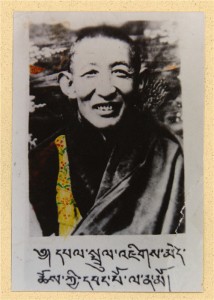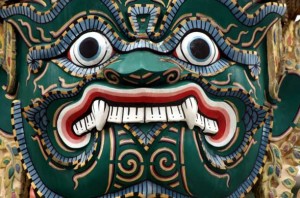The following is respectfully quoted from an introduction to Kün-zang La-may Zhal-lung by translator Sonam T. Kazi:
It is a universal truth that it is extremely enjoyable to live in this phenomenal world. Nobody wants to part with worldly pleasure. It is also a universal truth that everything that conditionally exists, sooner or later, must face ultimate destruction. This is not a pessimistic view. It is a fact. As the pleasant dream we have about health, wealth, beauty, fame, love, affection, and so on suddenly begins to fail, our sorrow knows no bounds. It is then that some of us get puzzled and begin to question the true meaning of existence. When death comes nearer, terrified by the unknown changes we will have to face, we try, as a last resort, to seek the help of the gods, goddesses, and the like. But do we have any idea who they are? For, the potentially most useful times in our life are spent fishing, watching television, smoking, drinking, gossiping and so forth. Even the small amount of spiritual practice that we pretentiously do is adulterated with worldly interest.
However, those of us who are aware of this ultimate catastrophe, in time, search for a solution to transcend death. We visit all the available religious camps in the world. Some of us come across the Buddhist teaching called Dzog-ch’en, or Atiyoga, whose superlative virtues excite us so much that we totally forget the proper approach to it. It is logical that, just as a towering building must have an equally sound foundation, success in the ultimate realization through Dzog-ch’en teaching depends entirely on a thorough understanding of the law of karma at the relative level. Kün-zang La-may Zhal-lung explains how to attain the proper balance between the relative and absolute aspects of the practice in very simple language.

